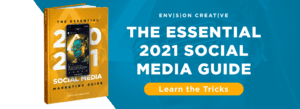There can sometimes be a tug of war that business owners and online marketers have with themselves: Do you produce content that’s best for search engines, or appeals more strongly to the actual people who you want as customers… knowing that you have to attract those people through search engines in the first place?
That’s a catch 22 that isn’t always easy to solve, but a little bit of creativity can usually lead to the kind of compromise that’s good for your business.
On the other hand, there are a number of tactics that people try – especially when they are first getting involved in search engine optimization – that don’t work at all because search engines and customers both hate them.
Here are five that you should stay away from:
- Poorly thought out domain names. It’s getting harder than ever to find available URLs, but going with five keywords crammed together into a nonsensical “.com” name isn’t doing you any favors.
- Confusing site structures. When search engines spiders crawl your site, they want to see a clear path and navigation structure. And if researchers can find what they’re looking for quickly, they will almost always click elsewhere.
- Spammy articles and pages. Google, Yahoo, and Bing have all caught on to the trick of articles and pages “written” by computer software and will ignore them completely. It goes without saying that these aren’t exactly appealing to potential buyers, either.
- Too much flash and animation. While the major search engines have gotten better at reading flash and animated pages, they still aren’t an ideal layout choice for the business that wants to achieve a higher rank on Google. Searchers, for their part, tend to look for a site that loads quickly and ranks highly in usability, rather than one that looks like a motion picture trailer.
- Links that don’t make sense. With Google’s “Panda” update, you could actually be penalized in the search engine rankings for having the wrong kinds of links in and out of your site. Random linking is also a sign to customers that you don’t pay attention to the quality or content on your pages.
Don’t let your desire for a better search engine position overwhelm common sense. Not only are these tactics a sign that you aren’t serious about growing your business online, but they’re likely to annoy search engines and the customers you want to reach at the same time.
-FINAL(01-00)-White&Blue-01.svg)




